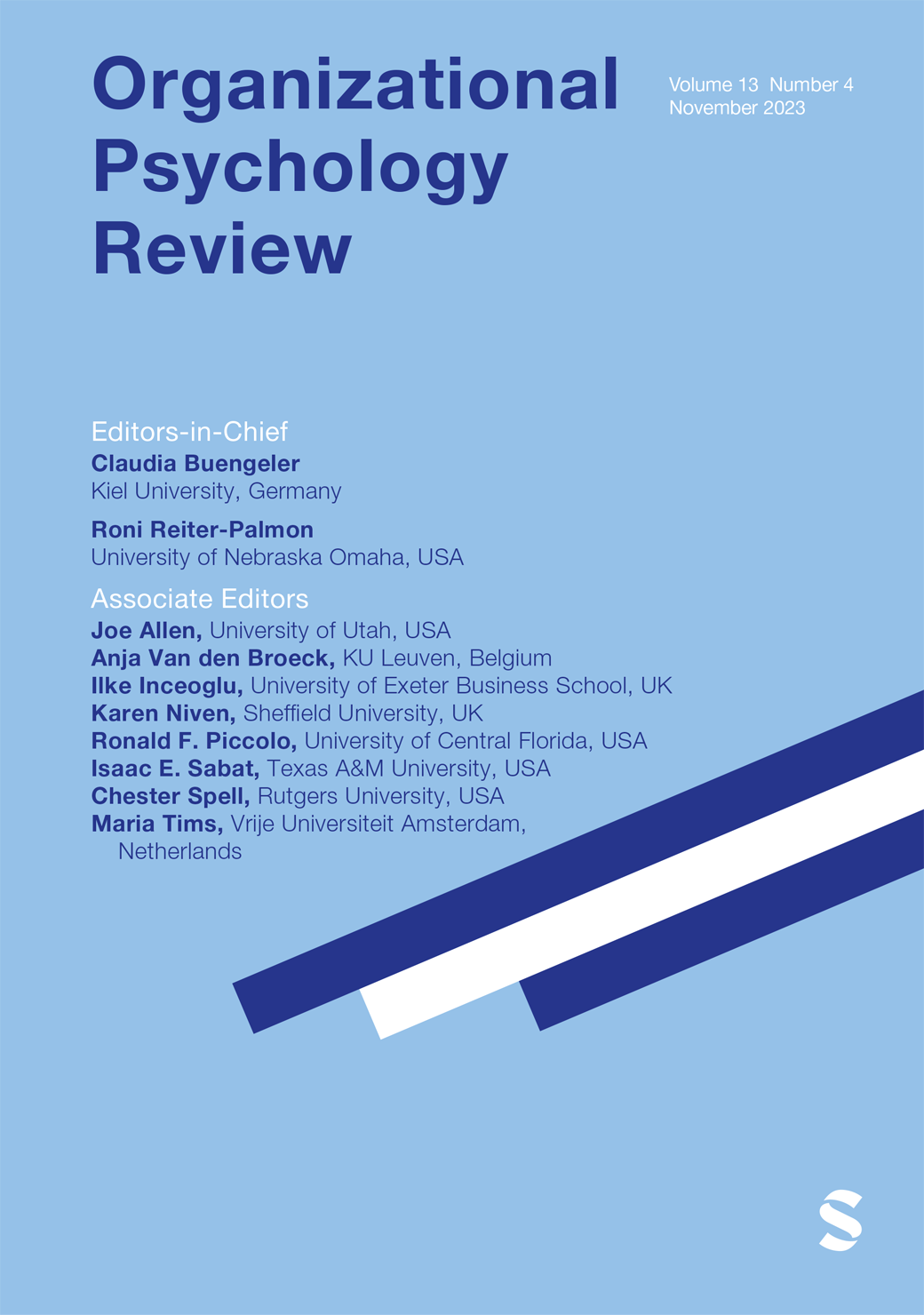Toward an organizational theory of meetings: Structuration of organizational meeting culture
IF 7.1
1区 心理学
Q2 MANAGEMENT
引用次数: 1
Abstract
Although research on meetings generally regards them as noteworthy organizational events, studies tend to focus on an individual or group level of analysis, conceiving of meetings as a phenomenon that happens in organizations but does not shape them. Integrating research on work meetings, structuration theory, and organizational culture, this paper develops the concept of organizational meeting cultures and suggests structuration theory as a framework for explaining their emergence, reproduction, and alteration. We propose a model of organizational meeting culture that theorizes work meetings as a foundational activity that shapes and reifies organizational cultures over time, contributing to their distinctiveness, and influencing patterns of perception regarding what is valued, expected, rewarded, and supported in specific work environments. It concludes with an agenda to be pursued in future research on the structuration of meeting culture. Although research on meetings seems to assume they are an important element of organizational life, studies tend to focus on an individual or group level of analysis, which results in theories that only construe meetings as a group phenomenon that happens in organizations but does not constitute them. We propose a model of organizational meeting culture that portrays work meetings as a foundational activity that doesn't just happen to occur within “already organized organizations” but instead also shapes organizational cultures over time, influencing their distinctiveness, shared views of what is valued, expected, rewarded and supported in specific work environments. Integrating research on meetings, structuration theory, and organizational culture, this paper develops the concept of meeting culture and proposes structuration theory as a way to explain how meeting cultures emerge, are sustained, and changed. It concludes with suggestions for future research.走向会议组织理论:组织会议文化的建构
虽然对会议的研究通常将其视为值得注意的组织事件,但研究往往侧重于个人或群体层面的分析,将会议视为发生在组织中但不影响组织的现象。本文结合对工作会议、结构理论和组织文化的研究,提出了组织会议文化的概念,并提出了结构理论作为解释其产生、复制和变化的框架。我们提出了一个组织会议文化模型,该模型将工作会议理论化为一种基础活动,随着时间的推移,它塑造和具体化了组织文化,促进了组织文化的独特性,并影响了人们在特定工作环境中对什么是有价值的、期待的、奖励的和支持的感知模式。最后提出了未来会议文化结构研究的一个议程。虽然对会议的研究似乎假设它们是组织生活的一个重要因素,但研究往往侧重于个人或群体层面的分析,这导致理论只将会议解释为组织中发生的群体现象,而不构成组织。我们提出了一个组织会议文化模型,该模型将工作会议描绘为一种基础活动,它不仅发生在“已经组织好的组织”中,而且随着时间的推移,它还会塑造组织文化,影响其独特性,以及在特定工作环境中对价值、期望、奖励和支持的共同看法。结合会议、结构理论和组织文化的研究,本文提出了会议文化的概念,并提出了结构理论来解释会议文化是如何产生、持续和变化的。最后对今后的研究提出了建议。
本文章由计算机程序翻译,如有差异,请以英文原文为准。
求助全文
约1分钟内获得全文
求助全文
来源期刊

Organizational Psychology Review
Multiple-
CiteScore
10.00
自引率
1.60%
发文量
25
期刊介绍:
Organizational Psychology Review is a quarterly, peer-reviewed scholarly journal published by SAGE in partnership with the European Association of Work and Organizational Psychology. Organizational Psychology Review’s unique aim is to publish original conceptual work and meta-analyses in the field of organizational psychology (broadly defined to include applied psychology, industrial psychology, occupational psychology, organizational behavior, personnel psychology, and work psychology).Articles accepted for publication in Organizational Psychology Review will have the potential to have a major impact on research and practice in organizational psychology. They will offer analyses worth citing, worth following up on in primary research, and worth considering as a basis for applied managerial practice. As such, these should be contributions that move beyond straight forward reviews of the existing literature by developing new theory and insights. At the same time, however, they should be well-grounded in the state of the art and the empirical knowledge base, providing a good mix of a firm empirical and theoretical basis and exciting new ideas.
 求助内容:
求助内容: 应助结果提醒方式:
应助结果提醒方式:


